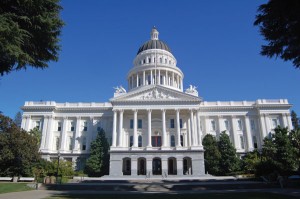Part-time legislature not likely to end political gridlock

Sacramento lawmakers spend inordinate amounts of time arguing about the budget, pensions, education, unions, water (and most everything else) without ever seeming to accomplish much. Budget problems lurch forward each year, zombie-like with no resolution. Unfunded pension liability, the elephant in the room that hardly anyone mentions, grows bigger each year. The infrastructure needs repair and the once-stellar California education is slipping badly. So what’s going on?
Other states have huge problems too. But California, sad to say, has become the poster child for dysfunction. I travel considerably in Nevada, Utah, and Arizona. Mention California politics and the budget crisis to people there and they are likely to shake their heads and say while their states may have problems, it’s certainly not as bolloxed up as California.
Republican Assemblywoman Shannon Grove of Bakersfield thinks the solution is to return to a part-time legislature, like California had before 1966. This would “get them away from the seductive atmosphere of the Capitol dome, get them back home with family, neighbors and work, and give them a better chance, as a citizen legislator, to serve their constituents' best interests." Her proposal limits the Legislature to meeting just 90 days a year and cuts lawmakers' pay to $18,000 a year from $96,000.
Others say that the part-time legislature was corrupt. Yet, when the full time legislature began in 1966, corruption flourished, resulting in numerous prosecutions. It’s difficult to see how the length of the legislative session had much impact on corruption either way. Plus, the new full-time legislature wasn’t more effective. So, term limits were enacted. Surely that would solve the problem, right?
Nope, it didn’t. In fact, Former Assembly Majority Leader Dario Frommer says “I can tell you first hand that term limits are largely responsible for the problems we have in Sacramento today.'' The lobbyists and bureaucrats stay while a revolving door of politicians comes through. They are not allowed to get decades of experience. Further, a part-time government would make things worse and give special interests even more power.
Grove’s proposed measure seems more geared to a small agricultural state. California has nearly 38 million people and a GDP comparable to Spain or Italy. How can such a huge economy be run effectively with a legislature that only meets 90 days a year? The current legislature meets far longer than that and can’t get important bills or the budget passed on time. It seems like wishful thinking to believe that allowing lawmakers to spend nine months at home in order to avoid the corrupting atmosphere of Sacramento would somehow result in better laws.
Also, if lawmakers are only paid $18,000 a year, then only the wealthy would be able to serve. Most of us can’t take three months off from work. Thus, only the independently wealthy would be able to afford to do it. This is contrary to the concept of a citizen legislator.
In my view, the biggest structural problem California has is the broken and easily gamed proposition system. Special interests can buy their way onto the ballot by paying signature gatherers. Propositions often mandate that money be spent but provide no revenue source. No other state has anything remotely like California’s proposition system. But it doesn’t work and it’s crippling California.
The part-time plan is a genuine attempt by a concerned legislator to end the gridlock. But it’s unclear how this solution could succeed due to California’s structural and deeply embedded political problems.




